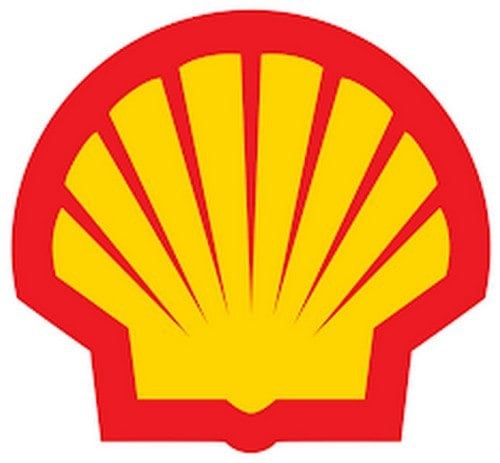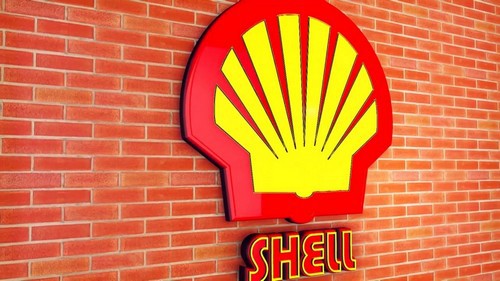The Marketing mix of Royal Dutch Shell analyses the 4Ps of Royal Dutch Shell, including the Product, Price, Place, and Promotions. Royal Dutch Shell plc is also referred to as Shell. Shell pipeline companies are associated with the oil and gas industry as they deal with the energy sector. Royal Dutch Shell is a public limited company of British-Dutch origin. This multinational company is known as one of the six supermajors and was founded in 1907 by merging Shell Trading and Transport Company from the United Kingdom with Royal Dutch Petroleum Company from the Netherlands.
In 2013, it was ranked first as the world’s largest company on the Fortune Global 500 list. It faces stiff competition, and some of its major rival companies in the Internet world are as follows-
- ConocoPhillips
- TOTAL
- BP
- Exxon Mobil Corporation
- Chevron Corporation
- Caltex
- Amsoil
- ARCO
- Sunoco
About Royal Dutch Shell
- Type: Multinational oil and gas company
- Industry: Oil and gas
Founded: 1907 - Founder: Marcus Samuel
- Headquarters: The Hague, Netherlands
- Area served: Worldwide
- Key people: Andrew Mackenzie (Chairman) and Ben van Beurden (CEO):
- Number of employees: 93,000
Table of Contents
Royal Dutch Shell Product Strategy
Royal Dutch Shell actively participates in most oil and gas industry areas. Its oil production is estimated at 3.7 million barrels daily, ranked first as the world’s largest producer of liquefied natural gas.
The new Product Mix of Royal Dutch Shell in 2023 is as follows (Source).
- Low-Carbon Electricity, Biofuels, and Hydrogen: Shell’s commitment to achieving net-zero emissions by 2050 is underscored by its focus on directly selling low-carbon electricity, biofuels, and hydrogen to households and electric vehicle owners. This shift towards renewable energy sources is a significant part of Shell’s strategy to reduce its carbon footprint and cater to the growing demand for sustainable energy solutions.
- Liquefied Natural Gas (LNG): Shell continues to strengthen its position as a significant player in the LNG market. The company has chartered four new low-emission LNG vessels, set to be delivered starting mid-2024, highlighting its ongoing investment in this sector.
- Traditional Oil and Gas Products: While Shell is transitioning towards more sustainable energy sources, traditional oil and gas products remain a significant part of its product mix. These include a range of petroleum products and services for various industrial and consumer applications.
- Retail Services: Shell is also enhancing its strengths as a retailer in the new net-zero world. This includes the sale of a variety of energy products and related services to individual consumers and businesses.
- Innovative Energy Solutions: Shell is investing in innovative energy solutions and technologies. This includes the development of new methods for energy storage, energy efficiency technologies, and the exploration of new renewable energy sources.
Royal Dutch Shell Place Strategy
Royal Dutch Shell has spread its operations in nearly seventy countries. Its headquarters is in The Hague in the Netherlands, and its registered office is at Shell Centre in London. The company operates in Algeria, Tunisia, Nigeria, Morocco, Libya, Ghana, Egypt and Cameroon in Africa. It has been active in Asia in Malaysia, Hong Kong, the Philippines, and Singapore.
The following vital aspects can characterize Royal Dutch Shell’s place strategy:
- Global Network of Retail Stations: Shell operates a vast network of retail stations worldwide, offering consumers easy access to its products, including traditional fuels, electric vehicle charging, and other energy solutions. This extensive network ensures brand visibility and accessibility in critical markets.
- Investment in Renewable Energy Infrastructure: Shell is investing in renewable energy infrastructure, such as wind and solar farms, to support its transition to a more sustainable energy mix. This includes both the development of new sites and the acquisition of existing operations.
- Strategic Partnerships and Collaborations: The company forms partnerships with governments, energy companies, and technology firms to enhance its global reach and diversify its energy offerings. These partnerships are crucial for exploring new markets and technologies.
- Digital and Online Platforms for Customer Engagement: Shell utilizes digital and online platforms to engage with customers, offer services, and provide information about its products and sustainability efforts. This approach aligns with modern consumer preferences for digital interaction.
- Focus on Key Growth Markets: Shell strategically focuses on key growth markets with increasing energy demand. This includes expanding its presence in emerging economies and regions with growing energy needs.
Royal Dutch Shell Pricing Strategy
Royal Dutch Shell has been ranked sixth among gas companies worldwide and the largest in Europe regarding the maximum value of revenues earned in 2016. At the end of the fiscal year 2017, it had posted its revenues and net income at 305.1 billion US Dollars and 12.97 billion US Dollars, respectively.
Royal Dutch Shell has targeted countries and corporate houses to fulfill its energy needs and individuals looking to meet their domestic needs via petrol and diesel. Government and market trends regulate most products related to the crude oil and gas sector, and the company has no choice but to maintain its pricing policy accordingly. It tries to maintain a policy that benefits its sales organization and clients.
Royal Dutch Shell’s pricing and marketing strategy, as a leading player in the global energy market, encompasses several key elements:
- Market-Based Pricing: Shell’s petroleum products and natural gas pricing primarily follow global market trends. Various factors, including supply and demand dynamics, geopolitical events, and changes in global energy policies, influence prices.
- Competitive Pricing in Retail: In its retail operations, Shell employs competitive pricing strategies to attract consumers. This involves pricing its fuels and other products in line with or slightly above competitors, leveraging its brand reputation for quality and service.
- Dynamic Pricing for LNG and Renewable Energy: For liquefied natural gas (LNG) and renewable energy solutions, Shell adopts a dynamic pricing strategy. The pricing in these segments is influenced by technological advancements, production costs, and the evolving regulatory environment supporting green energy.
- Strategic Pricing in Different Regions: Shell’s pricing strategy varies across regions to align with local market conditions, regulatory frameworks, and consumer purchasing power. This geographical pricing strategy helps Shell to optimize its profits while staying competitive in diverse markets.
- Premium Pricing for Innovative Energy Solutions: Shell may adopt a premium pricing strategy for its innovative and sustainable energy solutions. This reflects the higher costs associated with research and development in these areas and the added value these advanced solutions offer consumers and businesses.
Overall, Shell’s pricing strategy is designed to be flexible and responsive to the complex and ever-changing global energy market. The company balances competitive pricing to maintain market share while pursuing profitable growth in emerging energy sectors.
Royal Dutch Shell Promotion Strategy
Royal Dutch Shell is a firm brand name in various countries. It has adopted several marketing strategies to retain its brand position in target and consumer markets. Its distinctive logo is easily recognized and helps promote brand awareness among the target market.
The taglines are self-descriptive like Made to Move. Further, you can be sure of Shell and Let’s Go. Royal Dutch Shell advertises refined products via print, digital, and visual media in newspapers, magazines, and television. It recognizes the popularity of social media platforms and has adopted a distinctive promotional policy via Facebook, its official site, YouTube, and Instagram accounts.
Royal Dutch Shell is aware of its social responsibility and is working diligently towards reducing and reusing waste. Its scientists have created a lubricant for stopping corrosion. It actively participates in community projects by providing volunteers and raw materials from its company to make a difference.
The company has collaborated with composers and singers to promote its brand as a responsible and eco-friendly organization. It recognizes the advantage of sponsorship deals and has sponsored motorsports like BMW Motorsport, DJR Team Penske, Scuderia Toro Rosso, and Scuderia Ferrari.
Some Recent Video ads and Print ads for Royal Dutch Shell are:
Liked this post? Check out the complete series on Marketing Mix


Dear Sir
Your platform is very informative but the only thing is references to back whatever information you are trying to put across to someone like me.
Cheers
Enoru